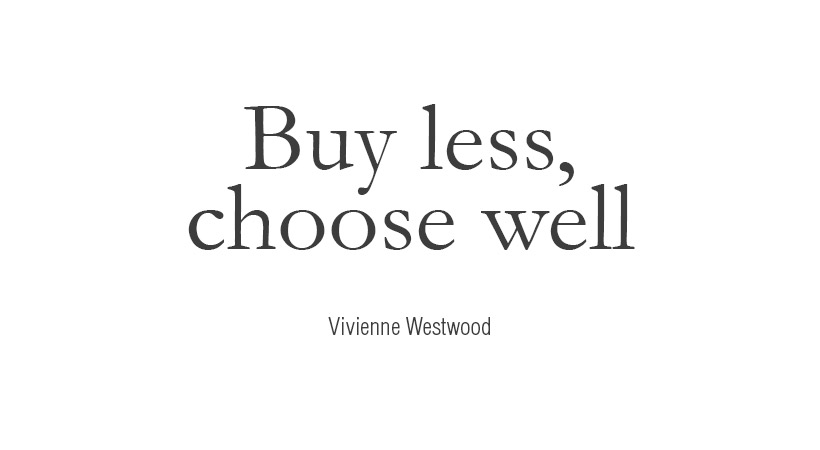This annual cycle of "in with the new and out with the old" has to stop!
Autumn is well underway here in Sydney, which means the time has come again for new fashion trends to be introduced at Sydney's annual Mercedes Benz Fashion Week. While this can be an exciting time for our fashion loving followers, it's important to look at fashion week through a sustainability perspective, which can help us to make wiser, more environmentally conscious consumer choices.
Fashion week is a perfect example of the fast pace, ever changing consumer culture that has driven us to the environmental crisis we face today. In fact, the fashion industry is the third most polluting industry in the world. The way fashion week operates on an annual schedule, introducing new trends every year, encourages a constant cycle of spending money on unnecessary material goods. Needless to say, fashion week has a very short-term agenda.
As a result of this annual cycle of "in with the new and out with the old" when it comes to fashion, landfills are growing at a shockingly fast rate. Over 4 trillion kg's of waste ends up in a landfill annually, and a large portion of that waste consists of clothes. The good news is, this pattern can easily be fixed with a little bit conscious consuming and a willingness to share.

When shopping, it is important to consider necessity. Ask yourself, do I really need this? Of course, it's ok to splurge on something special every once in a while, but over consumption is an ugly trend in the fashion industry, which can be avoided by only buying what we absolutely need.
It's also important to think long term when making clothing purchases. Question whether or not you will wear or even like the item in a year's time. Even more importantly, consider the quality of the item to ensure that it will last a while without ripping or fading. A tip for determining this is the looking at the percentage of natural fibres in the item, such as cotton, wool, or silk. Generally speaking, the higher the percentage of these materials, the better the quality. Of course, it's good to ensure that these materials are also produced in a sustainable way such as organically.
Whenever possible, buy clothes made from reused or recycled materials. Tthere are plenty of brands out there that prioritise the environment in the making of their clothes by using environmentally friendly materials and practicing sustainable manufacturing. You just have to look a little harder and do your research to find them!

Finally, share your clothes! Participate in clothing swaps, borrow a friend's dress instead of buying a new one, donate to and shop at second hand stores, and join our TuShare campaign!
1 Million Women has partnered with TuShare to promote the reuse revolution and encourage people to share the items they no longer need and discourage people from buying new items when they could simply find used items for free.
To learn more and to join the sharing revolution, simply click the button below.
What you can do
CO2 pollution is embedded in everything we buy. As shoppers and consumers, we have power to drive change and minimise pollution by looking for Australian-made products, credible environmental claims, and minimal and recyclable packaging.
Do shopper research on carbon footprint and sustainable credentials before you buy
savings pledged

